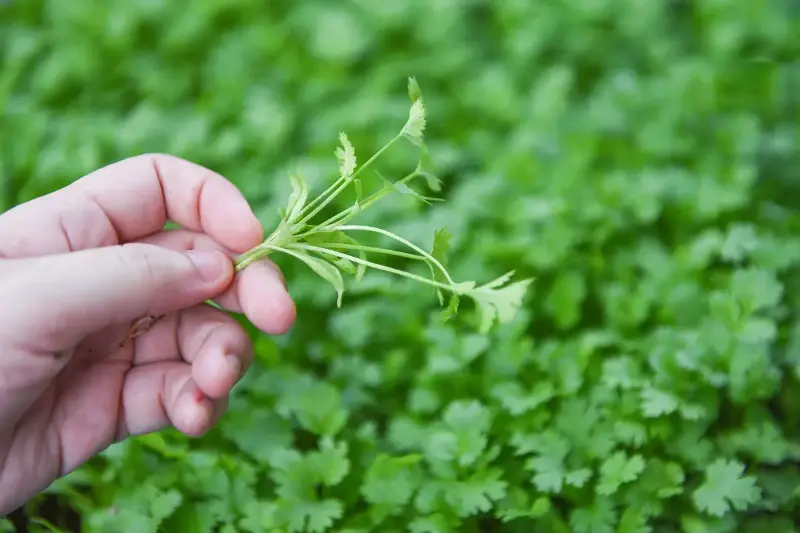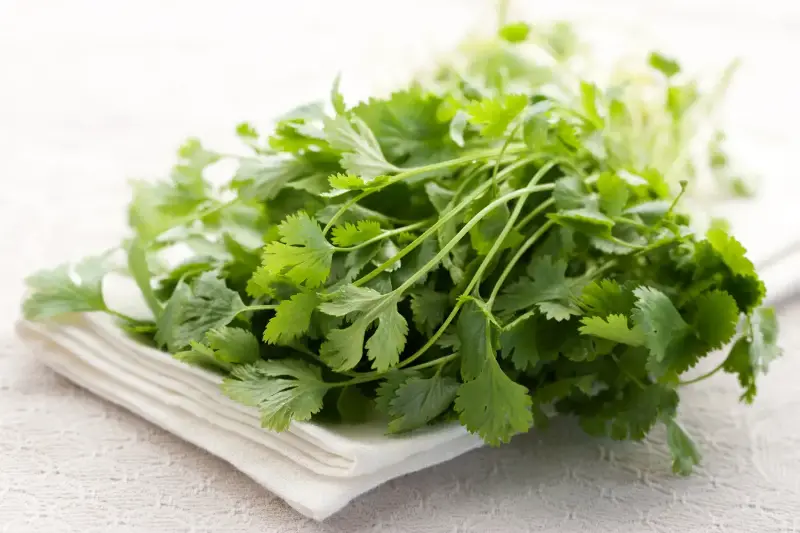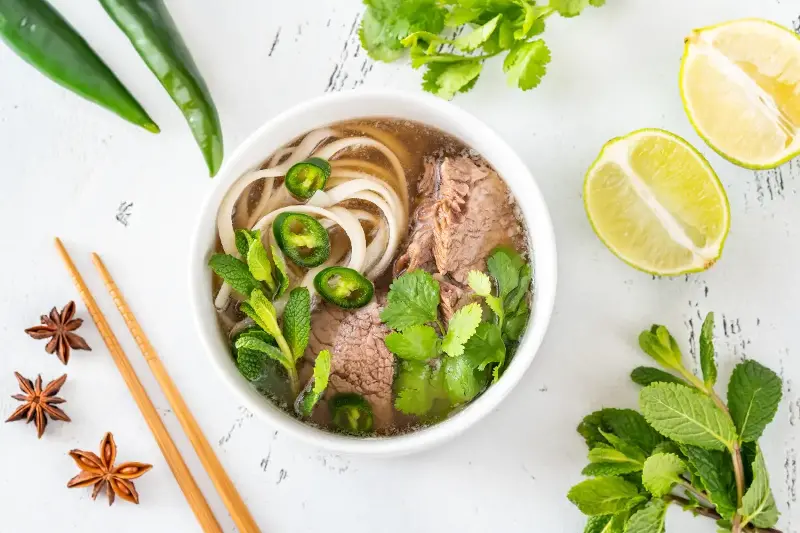If you have ever savoured the tangy freshness in a Thai salad or enjoyed the aroma of Vietnamese pho, then you’ve already crossed paths with coriander. Known globally as coriander, and in some regions as cilantro, this fragrant herb is more than just a vibrant garnish or a flavour enhancer. It has enchanted people from ancient times to our modern kitchens, not only for its taste but for its impressive array of health benefits.

A Plant Steeped in History
Coriander’s use can be traced as far back as ancient Egypt, where seeds were placed in the tombs of pharaohs. This herb graced the tables of the Romans, the Greeks, and ancient Chinese healers too. The coriander plant, including its leaves and seeds, has been prized as both a spice and a medicine. In traditional Ayurvedic and Chinese medicine, coriander has long been used to treat a variety of ailments, harnessing its soothing and healing nature.
In Southeast Asia today, coriander features in everything from sambals to curries and refreshing summer rolls. Its global journey as both a culinary star and a healing herb continues, enriching cuisines and traditions across cultures.
Potent Anti-Inflammatory Power
One of the most exciting secrets of coriander lies in its anti-inflammatory abilities. This green treasure contains compounds such as cineole and linoleic acid, both known for fighting inflammation naturally. Chronic inflammation can contribute to many health problems—from rheumatoid arthritis to heart disease—making coriander a surprisingly effective, natural ally.
Regular inclusion of fresh coriander leaves or seeds in meals can help the body’s own defences to calm and reduce inflammation. Some studies show that coriander extracts can inhibit the enzymes leading to swollen joints and tired muscles. For those who suffer from occasional aches or even chronic pain, adding coriander to your diet could offer subtle but meaningful relief.

A Rich Source of Antioxidants
Beyond inflammation, coriander shines as a source of antioxidants—nature’s best defence against harmful free radicals. Antioxidants in food help prevent cellular damage, slow the ageing process, and support the immune system. Coriander is packed with quercetin, vitamin C, beta-carotene, and other polyphenols which protect cells from oxidative stress.
In fact, coriander seeds and leaves contain higher antioxidant activity than many commonly used herbs. Regularly enjoying coriander may help reduce your risk of chronic diseases and assist your body in functioning at its best—even in the face of pollution and modern-day stresses.
Mysterious Healing Traditions
Coriander’s healing power extends far beyond the laboratory. Traditional knowledge from Asia and the Mediterranean region has long used coriander to ease digestive issues such as bloating, flatulence, and indigestion. The seeds, when steeped as a tea, soothe the stomach and can help reduce nausea.
In folk remedies, coriander has even been used as a gentle detoxifying agent, thought to help the body rid itself of heavy metals and toxins. Recent scientific studies are beginning to back up these ancient practices—showing that coriander compounds can help remove toxic metals like lead and mercury from the body, thanks to their chelating properties. If that isn’t a little magic, what is?

How to Include Coriander in Your Daily Diet
It’s surprisingly easy to enjoy the benefits of coriander. Sprinkle fresh leaves over soups, curries, or noodle dishes to highlight its delicate citrusy flavour. Blend coriander with garlic, chilli, and lime for an invigorating chutney or salsa. Add whole or ground seeds to rice dishes, roast meats, or spice blends.
In drinks, a handful of coriander adds zing to a smoothie or iced tea. For a gentle digestive aid, try warm coriander seed tea after a meal. The beauty of coriander is in its versatility—you can enjoy it raw or cooked, whole or ground, in both sweet and savoury dishes.
A Note of Caution
For all its gifts, it’s good to know that a small number of people may have allergies to coriander. Also, if you are pregnant, breastfeeding, or on medication, it’s wise to consult a healthcare provider before making significant diet changes.
Coriander, with its ancient heritage and remarkable healing potential, truly bridges the worlds of food and medicine. Next time you see those delicate leaves at the market, remember you’re not just adding flavour to your cooking—you’re tapping into thousands of years of culinary magic and natural wellness. Why not let coriander bring both sparkle and health to your plate?
